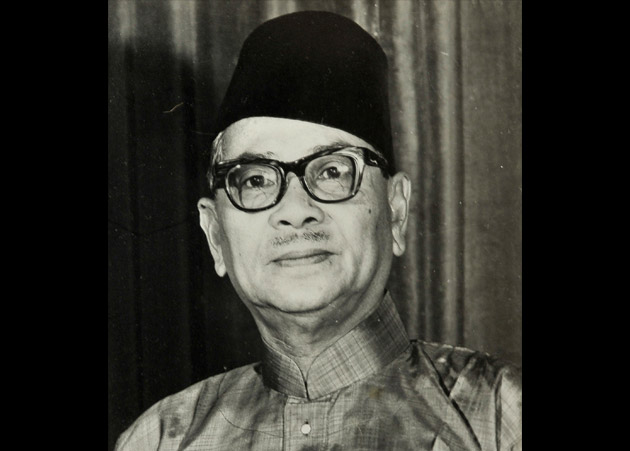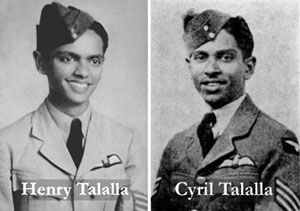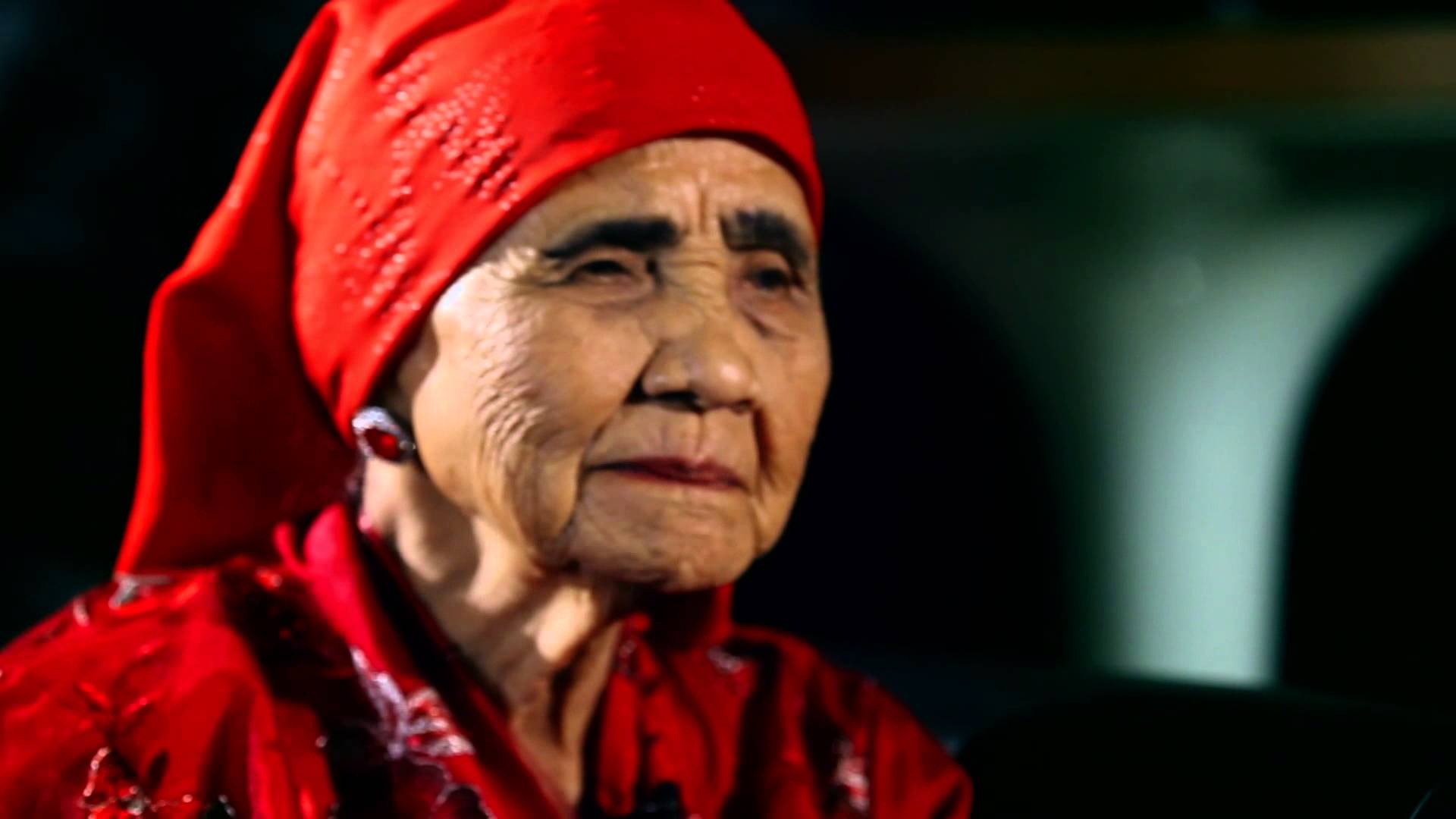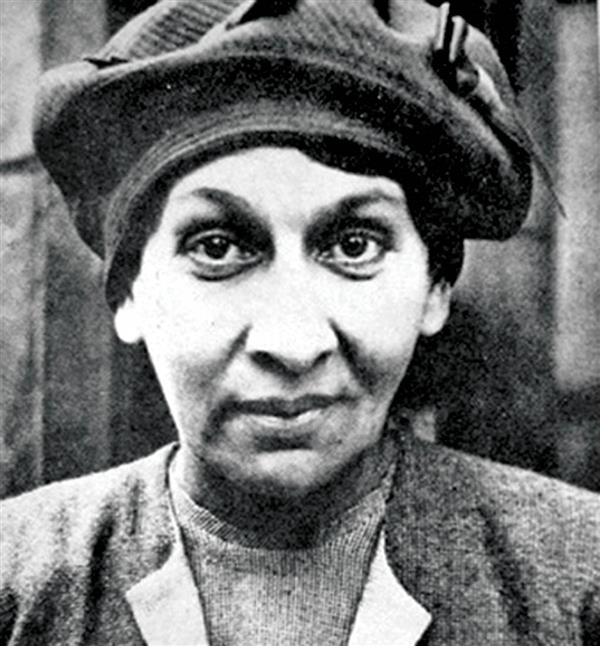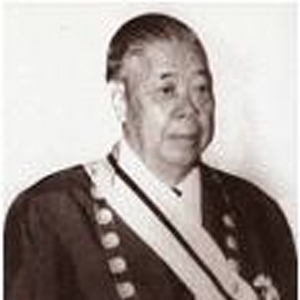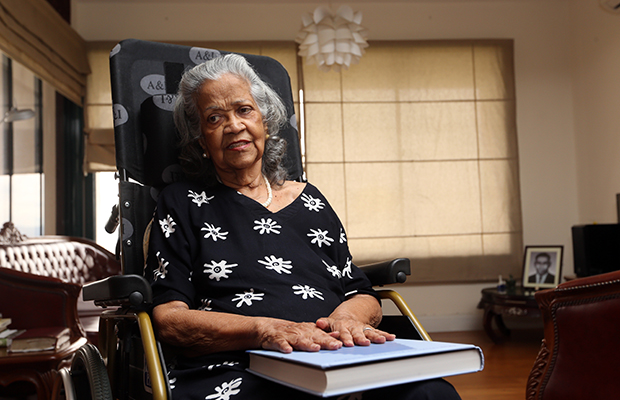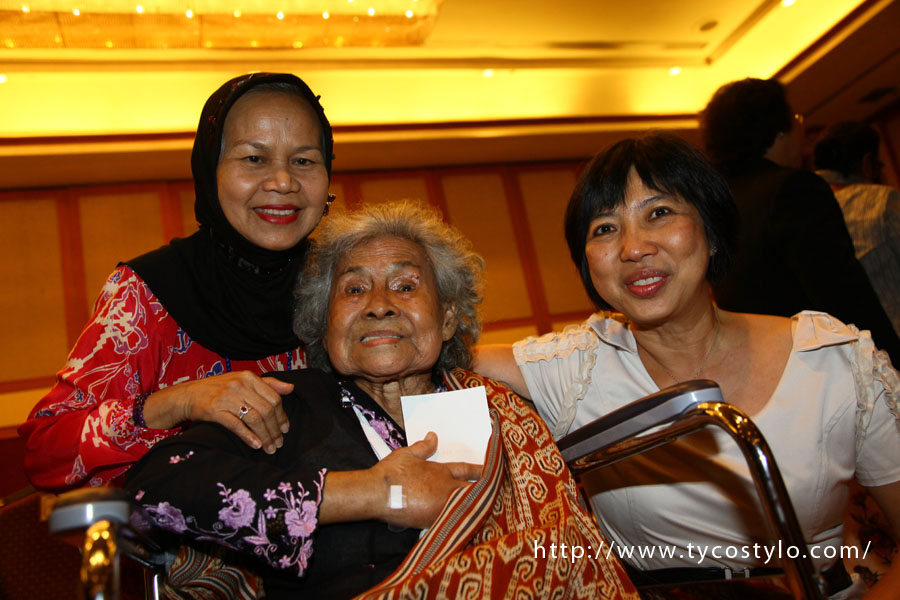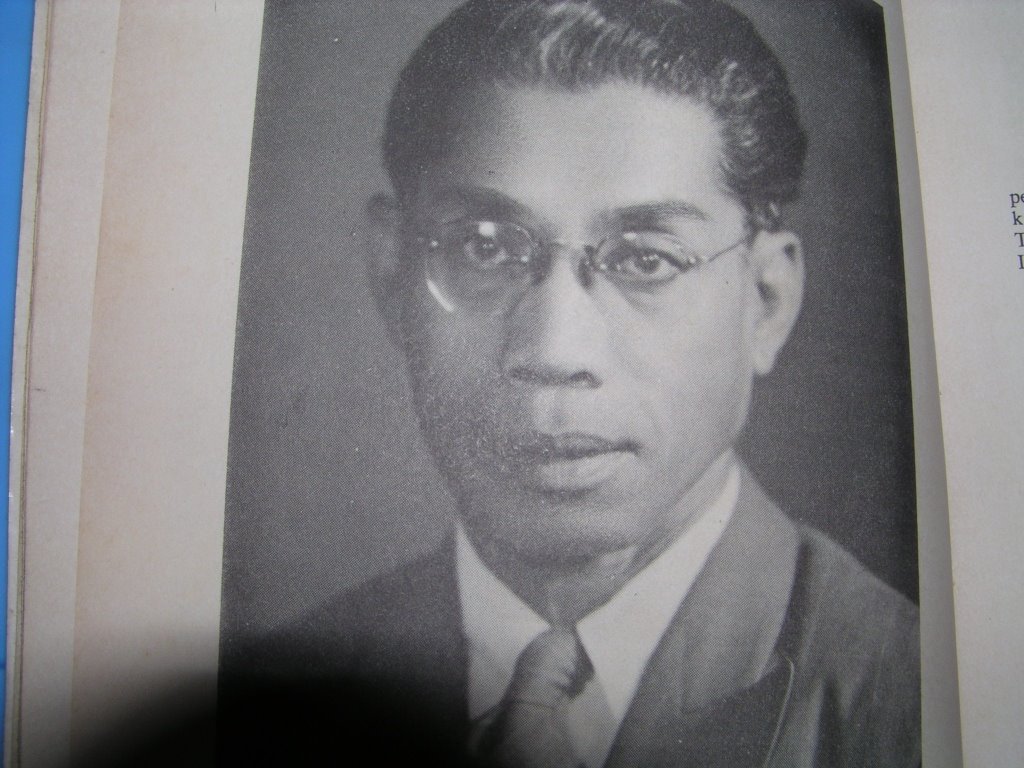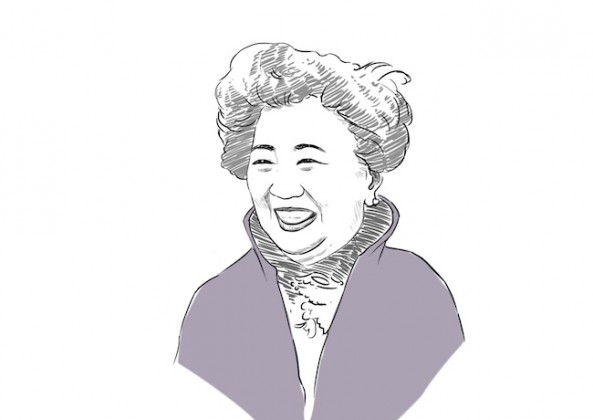9 Unsung Malaysian Heroes That Deserve A Spot In Our History Books
A journey down memory lane on some of the most extraordinary people in Malaysia.
When we think of Malaysian heroes, the first few names that pop up are usually Tunku Abdul Rahman, Aishah Ghani or Tun Tan Cheng Lock.
However, true to the definition of unsung heroes, there are quite a number of locals that are not usually mentioned but have greatly impacted the progress of the country.
Here are 9 people who deserve a place in our history text books for their exemplary contributions to the nation's growth:
1. Cyril and Henry Talalla - World War II warriors
A decorated war veteran, Flight Lieutenant Cyril Talalla was the first Asian and the only non-European to pass the very strict Royal Air Force entrance test and enrol as a cadet in a government flying school. His brother, Henry, on the other hand followed suit six months later, eventually becoming a Sergeant Pilot.
Henry was also one of the first few pilots to have flown the Typhoon, a British single-seat fighter bomber that is known for its dangerous missions due to its destructive power.
In March 1945, Cyril was awarded the Distinguished Flying Cross (DFC) by King George VI for his contributions during the war. Sadly, Henry's Typhoon was struck down on 25 July 1944 ten miles south of Caen, the capital of northern France's lower Normandy region when engaging with German panzers (armoured units). Cyril Tallala passed away in Wales on 18 August 1973.
Their father was a Sinhalese from Ceylon (Sri Lanka) who arrived in Malaya with just a few cents in his pocket and eventually rose to become a successful businessman in Kuala Lumpur.
2. Datuk Siti Rahmah Kasim - Independence activist and contributor of the 'Bangle of Independence'
Known for the iconic moment when she donated her gold bangle to support Tunku Abdul Rahman's trip to London to obtain the country's independence from the English during an UMNO conference held in Melaka in 1957, Siti inspired so many other people to contribute their valuables including rings, bangles, gold wristwatches, dress pins, and brooches to fund Tunku's trip.
During an interview with Bernama in 2010, she described her selfless act as love for her country and people. The bangle, which is now known as the "Bangle of Independence", was a wedding gift from her beloved father.
Siti Rahmah is one of the first few women who contributed to the Malaysian politics and fought for the independence of the country.
The strong-willed 90-year-old who's currently the president of Negeri Sembilan Muslim Welfare Organisation Malaysia (PERKIM), still plays an active role in the community and politics and was recently awarded the Tokoh Wanita Negeri Sembilan 2016 award.
3. Dr. M.K. Rajakumar - The father of family medicine
The former president of Malaysian Medical Association (MMA) was known for his passion for social justice, democracy and political freedom. As a young medical student at the University of Malaya which was then based in Singapore, Rajakumar co-founded the Socialist Club of the university and his radical views on western imperialism in Asia led to a sedition suit in court.
He was also involved in the talks of the Malaya-Singapore debate and eventually became one of the key leaders of the Labour Party of Malaya until its deregistration in 1972.
Moving his focus back to his medical profession, Rajakumar started advocating for affordable healthcare and spearheaded the local medical association's historic and in-depth review of the Malaysian Healthcare System in 1970s. He was also responsible for setting up the 'Malaysian Physicians for the Prevention of Nuclear War' (MPPNW) within the MMA.
Often regarded as the father of primary health care, Rajakumar went on to set up the Malaysian Academy of Primary Health Care Physicians. His outstanding contributions to the primary health care sector was recognised by the World Organisation of Family Doctors (WONCA) that established the 'Rajakumar Movement' in 2008 to foster mentoring between current and future leaders in family medicine in the Asia Pacific region and allow them to further explore the depths of family medicine.
Rajakumar passed away on 22 November 2008 due to heart and lung complications at the age of 76.
4. Sybil Medan Kathigasu - The Florence Nightingale of Malaysia
The Japanese occupation of Malaya was a bleak and terrifying time for many, especially women and children. The soldiers showed little mercy to anyone that defied their orders and most locals showed little objection or protest to protect their lives.
Sybil Medan Kathigasu thought differently. The young Malayan nurse of French and Penang Eurasian descent was determined to help with the resistance efforts in Malaya during the occupation. With the help of her husband, Dr. AC Kathigasu, she supplied medicine, medical assistance and information to the resistance forces in Papan, Perak until they were captured by the Japanese in 1943.
She was said to have undergone the 'waterboarding' torture treatment whereby water was pumped into her while the soldiers beat and jumped on her stomach. According to an article by Mariam Mokhtar on the Hornbill Unleashed in 2010, Sybil was also burnt and kicked in the jaw and the torture left her with broken bones. Not once did Sybil break or give up any information on the resistance forces.
Her daughter was apparently dangled from a tree while ants bit her, but even that did not deter her loyalty to the resistance movement. She spent the rest of the war incarcerated at the Batu Gajah jail and was then sent to Britain for medical treatment.
The courageous woman was awarded with the George Medal for Gallantry, making her the first and only Malayan woman to receive the medal. Sybil Medan Kathigasu succumbed to her severe, prolonged injuries and passed away on 12 June 1948 in Lanark, Scotland. To commemorate her extraordinary bravery and loyalty, a road in Fair Park, Ipoh was named after her.
5. Datuk Seri Lau Pak Kuan - The father of tin mining and a serial philanthropist
The founding member of the Malaysian Chinese Association (MCA) was a man with humble beginnings. Lau first came to Malaya at the tender age of 19 with his wife and worked as a tin-mine pushcart boy for years before being promoted to the position of a supervisor.
His career picked up as he went on to establish his own mining business and ended up opening a chain of 20 mining companies. He then became involved in numerous charity and social work and was eventually elected as the vice-chairman of the 'Nanyang Overseas Chinese, Save China Fund-Raising Committee' which sent funds to assist China with their fight against the Japanese invasion.
Throughout the Japanese occupation of Malaya, Lau was away in China where he was put in charge of fund raising and the setting up of the United Overseas Chinese Bank. Upon his return to Malaya after the occupation, Lau was elected as an officer by the British Military Authority (BMA) to grant permits to those coming back to Malaya.
His exemplary contributions to the country include the establishment of the Social Welfare Lottery Board that helps to assist poorer members of MCA, starting the Paloh Temple School, a free school which helped educate the poor and people over their schooling age, and many other philanthropist work. He was awarded the Order of the British Empire (OBE) by Queen Elizabeth II in 1956 and appointed as the Justice of Peace by the English.
Lau Pak Kuan was also the first Chinese individual to be awarded the Dato’ Seri title by the Perak Sultan in 1966.
6. Datuk Rasammah Bhupalan - The woman who changed the face of pay equality for educators
One of the very first female fighters for the independence of Malaya, Rasammah Bhupalan joined the Rani of Jhansi Regiment of the Indian National Army and served in Burma during the second world war at the tender age of 16.
After the war, Rasammah completed her education and graduated from the University of Malaya in Singapore and started teaching at the Methodist Boys School from 1959 to 1964. She co-founded the Federation of Malaya Women Teachers Union (WTU) in March 1960 and actively fought for equal pay among women teachers regardless of sex, race and ethnicity.
After years of struggle, in 1964, the government approved the equal pay rate for teachers. It wasn't just the education sector that Rasammah focused on, she actively championed for the raise of minimum wage and pension packages and against rape and domestic violence.
At the age of 86 now, Rasammah continues to be a voice of reason and remains an active part of the local activist community. She is currently the National Council of Women's Organisation's (NCWO) head of law and human rights commission and a trustee of YWCA Vocational Training Opportunity Centre.
7. Dato’ Sri Tra Zehnder - Sarawak political pioneer and Iban activist
Dato’ Sri Tra Zehnder (seated in the middle) with authors of her biography, 'Tra Zehnder: Tokoh Wanita Iban Sarawak', Prof Rokiah Talib & Prof Hew Cheng Sim on 12 July 2011.
Image via Black Bow DiariesKnown to be one of the pioneers of the Sarawak politics and Iban woman patriot, Tra Zehnder was born on 25 October 1926 in Miri, Sarawak. She married a Eurasian colonial government officer after the Japanese occupation and used her newfound standing in the society for her cause and fight against the injustice thrust upon the Dayak community by the colonial government.
One of her most prominent fights was against the degradation of Iban women's depiction on postcards as bare-breasted individuals which were also said to be used as tourism promotion materials. She started the Serakup Indu Dayak Sarawak (SIDS), a state Dayak women's association and through that, repeatedly called for the ban of such postcards. It led to the government banning the production of postcards with bare-breasted Iban women on it and for the existing ones to be taken down.
A true fighter for women's and native rights, Tra was the first woman to be appointed as the member of the State Legislative Assembly from 1960-1963. She was also the first female Temenggong and served from July 1988 till February 1963. Aside from these, it is thanks to her efforts that 1 June is officially recognised as Dayak Day.
Tra's contribution was awarded with prestigious accolades like Datuk Patinggi Laila Taib Award Pegawai Negara Bintang Sarawak award. The courageous Iban warrior passed away on 22 July 2011 in Sarawak.
8. Ibrahim Mahmood - Prominent journalist and author during the independence era
A true unsung hero of the independence era, the name Ibrahim Mahmood may sound highly unfamiliar to many. An eye opening article by Syed Imran Syed Ahmad in 2006 brought light to the matter. Born in 1908 in Tanjung Tokong in Penang, Ibrahim's contribution to the country's journalism scene, fight against Malayan Union, the formation of UMNO and of course Malaya's independence are vast and varied.
He authored 'Wartawan', the first ever book published on journalism in the Malay language, along with several others including 'Turki dan Kamal Ataturk', 'Turki dan Tamaddunnya', 'Pantun Rindu Malam', and 'Kenang-kenangan Hari Raya'. Ibrahim was also the editor of the 'Warta Negara' newspaper, one of the most popular and widely read Jawi script daily in Peninsular Malaysia during the pre-independence era.
His involvement and contribution to the local politics were equally impressive. Being one of the founding members of UMNO, who went on to become the president of Kesatuan Melayu Pulau Pinang (KMPP), Ibrahim was one of the 29 people who signed the 'Piagam UMNO' during the party's first general meeting at Istana Besar, Johor Bahru in May 1946.
Ibrahim Mahmood passed away on 31 August 1993 at the age of 85.
9. Mrs BH Oon - First Malayan female lawyer
BH Oon was born as Lim Beng Hong in 1898 and went on to become the first Malayan female lawyer to be called to the English Bar in 1926, the first ethnic-Chinese woman Barrister at Penang and also the first female lawyer in Malaya.
A feature on Poskod Malaysia highlighted many of Oon's glorious achievements and contributions to the country. It was said that when she applied to the Bar of the Straits Settlement and Federated Malay States, they had to amend their rule which only admitted men, to take her in. Oon also served in the Federal Legislative Council in 1948, focusing on nation building.
In 1952, Oon was awarded with the Most Excellent Order of the British Empire for her contributions to the public service and was eventually elected as the President of the International Federation of Women Lawyers (FIDA) in 1971. BH Oon passed away in 1979 at the age of 81.
